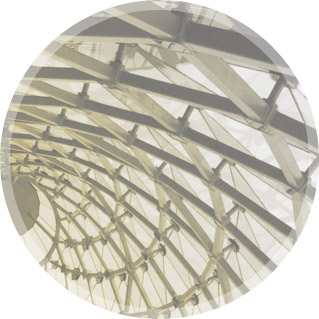Illinois Institute of Technology
College of Architecture
The College of Architecture at Illinois Institute of Technology builds on a legacy of disciplined experimentation in materials and technologies to educate and inspire the next generation of architects and landscape architects. From its landmark campus and home at S. R. Crown Hall, IIT Architecture champions an interdisciplinary approach to education and research that is simultaneously local and global in its impact.IIT Architecture students are educated to address complex, contemporary challenges of designing and constructing across all scales. Both faculty and students enjoy a longstanding relationship with professional practice in Chicago, a city with a vibrant history of innovation in architecture, design, landscape architecture, and urbanism.
http://www.arch.iit.edu/
Setting
While there are many outstanding architecture programs in the United States, the College of Architecture at Illinois Institute of Technology enjoys an obvious advantage: it is located iN Chicago. Urban schools generally benefit from the repositories of architectural production that comprise cities. It is easy—and fun—to teach architecture when it is all around you. In Chicago, what surrounds us is unique. We live, work, and teach within a catalog of nearly every important moment in modern American architectural history: the invention of the skyscraper, the birth of the City Beautifulmovement, the creation of the Prairie Style, the development of American modernism, and the invention of the supertall building, to name just some.
Nothing better expresses Ludwig Mies van der Rohe's philosophy than S. R. Crown Hall, home to the College of Architecture, and a modern masterpiece that Time magazine calls "one of the world's most influential, inspiring and astonishing structures."
Designed by Mies in 1956, Crown Hall cohesively represents his architectural concepts and theories in their most complete and mature form. A National Historic Landmark, Crown Hall is a straightforward expression of construction and materiality, which allows the structure to transcend into art. Its refinement and innovation place it among the most distinguished buildings of its age and define its importance in the history of architecture. S. R. Crown Hall was granted National Historic Landmark status in 2001 by the National Parks Service, U. S. Department of the Interior.
School Philosophy
Building out of our past—while not replicating it—the College of Architecture’s programs of study emphasize the rigorous application of critical thought and intellectual inquiry to architecture, landscape, urban design, and technology. The College draws strength from its unique traditions and circumstances: its legacy as a preeminent school of modernism with a global impact; its location in Chicago, with its rich and influential architectural and landscape architectural heritage; and its present-day connections to a remarkable range of progressively minded, global. Our students, faculty, and alumni foster an academic environment that is intellectually stimulating, professionally challenging, committed to innovation, and international in scope.
The studio environment in the College of Architecture is characterized by its openness, fostering a free and respectful exchange of ideas and the development of interesting and innovative proposals. Group, partner, and individual projects are a part of every studio, preparing students for professional life during which collaboration between varied disciplines, specializations, and interests is essential to a successful project.
Studios in the College of Architecture often engage communities in the local Chicago area, as well as nationally and internationally, to address relevant present day needs. Diverse opportunities such as these provide students with experience as both team members and team leaders.

Programs
Bachelor of Architecture (B.Arch)
Our B.Arch. program is a five-year undergraduate degree accredited by the National Architectural Accrediting Board (NAAB)—allowing our graduates to become licensed architects without additional degrees. In conjunction with the B.Arch. program, we offer a wide range of specializations, minors, dual, and co-terminal degrees.
The five-year, ten-semester studio sequence provides an integrated approach to architecture with an emphasis on construction, structure, enclosure, and integrated environmental systems as fundamental to the design problem. The core years, 1-3, provide a comprehensive approach to building design. Support courses in design communication, professional practice, architecture and urbanism, building systems and architectural history/theory stress critical thinking, cultural context, sustainability and professional practice. In the final fourth and fifth years, students take 2 semesters of elective Integrated Design Studios and 2 semesters of elective Advanced Studios
Our B.ARCH. program is officially approved as a STEM designated field of study in Architectural and Building Sciences/Technology within the U.S. Department of Homeland Security’s STEM designated fields list. International students who have earned degrees in (STEM) fields in the US, may apply for a 24 month extension of their post completion OPT employment for a total of 36 months, a significant benefit for international students who wish to stay and work in the US post-graduation.
Master of Architecture (M.Arch)
Our M.Arch curriculum is centered around design studios led by prominent architects. Our design studios develop the skills and intuitions that students need to address the most pressing and challenging architectural and urban problems of the day. Each studio offers a distinctive learning environment in which students sharpen their capacity to think critically, experiment speculatively, and make architecture ambitiously. Beyond the studio we offer an integrated architectural education spanning building technology, architectural history and theory, professional practice, and digital fabrication and visualization.
https://arch.iit.edu/study/m-arch-curriculum
Master of Landscape Architecture (MLA)
Landscape Architecture + Urbanism at IIT is where the world comes to learn the skills to build the metropolis of tomorrow. Our program is a fundamentally progressive urban enterprise based on three defining principles: the equitable global growth of our urban centers, robust transdisciplinary collaboration, and the advancement of urban landscape theory in research and in practice. IIT students investigate complex socio-environmental challenges through creative inquiry and innovative technological ideation. As the only accredited Landscape Architecture program in Chicago - and among only the few in large North American cities - we are uniquely positioned to confront these challenges.
Dual Master of Architecture/Landscape Architecture (M.Arch./M.L.A.)
The Master of Architecture/Landscape Architecture (M.Arch./M.L.A.) dual degree has been shaped in recognition of the fact that in the best circumstances, architecture and landscape work in synthesis to shape our built environment. This newly created dual degree program provides core knowledge in both fields, while also emphasizing their shared territories and concerns, and ultimately preparing students to engage with the full complexity of the contemporary metropolis. By bringing the Master of Landscape Architecture and Master of Architecture degrees together, we embrace the integrative thinking that will address the challenges and opportunities set before designers of the 21st century.
Master of Science in Architecture (MS Arch)
Global urbanization, the proliferation of information technologies, and the anthropogenic impacts on ecosystems are among the most visible trends of the first decades of the twenty-first century. Around the world, habitats continue to evolve into novel “post-city” formations, generating new paradoxes and redefining the role of the architect. As the skilled artificer of the built environment, the architect must come to terms with these new realities. Illinois Institute of Technology’s Master of Science in Architecture program positions its investigations in the space between emerging forms of urbanization and existing concepts of architecture, landscape, and cities. Our goal is to develop new and better models for shaping socially, culturally, and ecologically sustainable environments.
Master of Tall Buildings and Vertical Urbanism (M.TBVU.)
With 70 percent of the global population projected to urbanize by 2050, the way we design, construct, and manage tall buildings has never been more critical. The Master of Tall Buildings and Vertical Urbanism (M.TBVU.)—the only degree of its kind—is a design-based, interdisciplinary program offered by Illinois Institute of Technology’s College of Architecture. It supports the research and discovery that is vital to the development of high-performance, energy-efficient, healthy, and sustainable high-rise buildings that will define the cities of tomorrow.
Illinois Tech is uniquely positioned to explore tall building design. Our program builds upon a decades-long legacy of experimentation in high-rise structures, which led directly to world-famous buildings such as the Willis (formerly Sears) Tower and 875 North Michigan (formerly the Hancock Center). The program is also part of our partnership with the Council on Tall Buildings and Urban Habitat (CTBUH), the world’s leading authority on tall buildings.

of Focus
1. Digital Fabrication & Technology
2.Building Technologies
3. Historic Preservation. 4. Community Design
5. Urbanism
6. Design/Build
7. Digital Design & Visualization
8. Sustainability & High-Performance Built Environments

Opportunities

Facilities

Policies
Transfer Policies
Illinois Institute of Technology offers an unparalleled academic experience for all of our students, including those who transfer to our university from two- and four-year institutions. Each year transfer students make up approximately 30 percent of Illinois Tech’s incoming class.
Illinois Tech accepts coursework designated by the Illinois Articulation Initiative (IAI), a statewide articulation agreement between participating institutions that facilitates the seamless transfer of general education courses and select major courses.
See https://www.iit.edu/
Check out our Transfer Viewbook here: (https://admissions.iit.edu/undergraduate/programs/iit-undergraduate-brochures)



